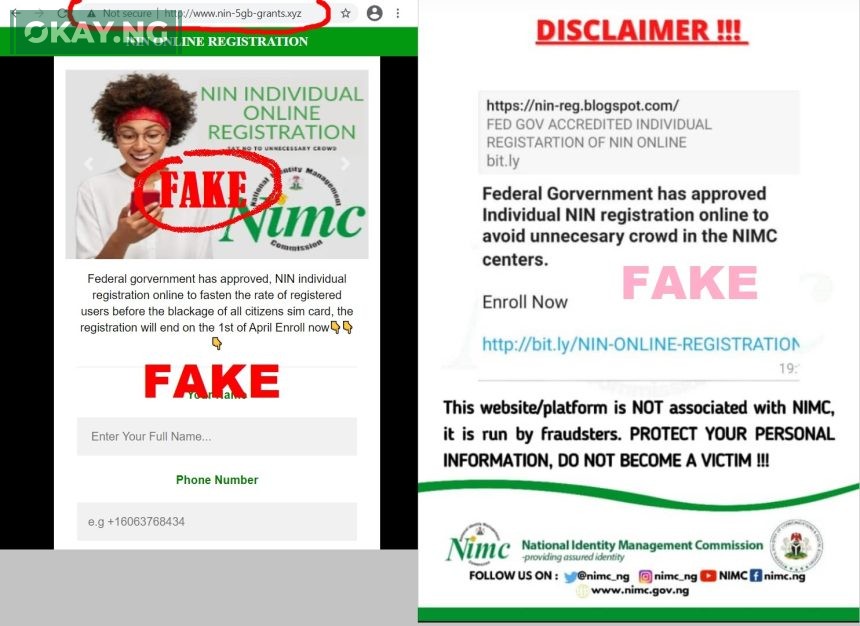The National Identity Management Commission (NIMC) has issued a stern warning against the circulation of unauthorized “NIN cards,” mandating security agencies to apprehend and prosecute those involved. This move comes as the commission finalizes plans to launch its long-awaited General Multi-Purpose Card (GMPC), a development aimed at revolutionizing national identification and financial transactions.
“The so-called NIN card is not authorized by NIMC, and on no account should anyone present it as a means of identification,” stated Kayode Adegoke, Head of Corporate Communications at NIMC, in a recent press release. The commission has observed a surge in “unscrupulous individuals, cyber cafes, and organizations” printing these fraudulent cards, exploiting the public’s need for valid identification.
This crackdown underscores the NIMC’s commitment to safeguarding the integrity of the national identification system. The commission reiterates that the NIN slip remains the only legally recognized document for identification purposes, pending the official rollout of the GMPC.
The impending launch of the GMPC holds significant implications for Nigerians. Envision a single card that seamlessly integrates your national identity with payment functionalities. This is the promise of the GMPC, a card designed to address “multiple use cases of federal government and private sector interventions,” as articulated by NIMC’s Director-General, Dr. Abisoye Coker-Odusote.
Beyond mere identification, the GMPC is poised to tackle pressing social and economic challenges. Its features, including biometric authentication, KYC compliance, and offline/online transaction capabilities, are designed to foster financial inclusion, particularly in areas with limited internet access. “The card has a long validity period because it’s also fully KYC enabled and it has an offline and online capability,” Dr. Coker-Odusote explained.
However, unlike previous attempts at free card distribution, the GMPC will require a fee. Dr. Peter Iwegbu, Head of Card Management Services at NIMC, attributes this decision to “the government’s limited resources to fund free cards” and the desire to avoid repeating past mistakes where “over two million cards were produced in the previous attempt to issue free National ID cards by the NIMC, but many of them were uncollected to date.”
Read Also: Diaspora NIN Enrolment Skyrockets, Fueling Nigeria’s Digital Identity Push
This decision, while pragmatic, evokes a sense of concern. For many Nigerians struggling with economic hardship, an additional expense for essential identification could pose a significant burden. Recognizing this, Dr. Iwegbu assured that “the government has different programs to make the card available to less-privileged Nigerians who may not be able to pay for the card but need it to access government support.” NIMC is also partnering with banks nationwide to facilitate card issuance.
The transition to a paid system raises questions about accessibility and equity. How will the government ensure that the most vulnerable citizens are not excluded from this crucial service? The success of the GMPC hinges not only on its technological capabilities but also on its ability to reach every Nigerian, regardless of their economic status.
As we anticipate the official launch, the NIMC’s proactive stance against fraudulent NIN cards signals a commitment to a secure and efficient national identification system. The GMPC holds the potential to streamline transactions, enhance security, and foster financial inclusion. However, its success will ultimately be measured by its ability to serve all Nigerians, ensuring that no one is left behind in the digital age.













